A version of this essay has been published by firstpost.com at https://www.firstpost.com/opinion/opinion-what-makes-trump-a-better-candidate-for-india-and-world-13831800.html
An AI-generated (courtesy notebookLM.google.com) podcast based on this essay is here:
In all humility, I accept that my endorsement of Donald Trump for the office of POTUS doesn’t make a difference, but I think it’s important for me to articulate why I think Trump is the better choice for all concerned.

On the one hand, there are the purely objective factors: economic policies, foreign policy, immigration, and so on. On the other hand, there are the subjective factors: who I personally think is good for the US and for India, the only two countries, lets’ face it, that I care about.
The subjective factors are the ones that matter, I suspect, and my views are shaped by my own personal history. I grew up in an India that looked up to America; many houses had framed photos on their walls that showed a young John Kennedy walking with Nehru in the Rose Garden of the White House; as a food-deficit country we awaited the PL-480 shipments of foodgrains, so much so that cornflour in Malayalam is called ‘American maavu’ or flour.
I remember as a child when Marilyn Monroe died, and John Kennedy, and I listened to the Voice of America coming in on shortwave radio from, I think, Mauritius; I went to the nearby US Information Center to see an exhibit of moon rocks; my father’s PhD thesis was on John Steinbeck; I read SPAN magazine that showed a sanitized picture of life in the US that was aspirational.
In college, I devoured information about America, reading Time and Newsweek magazines. I went to the US consulate in Chennai to use the library; and my beloved professor Anthony Reddy, seeing our collective obsession with the US, referred to it as “God’s own country” (this was before Amitabh Kant as tourism secretary propagated that moniker for Kerala, and in any case I believed that my two homes – Kerala and California – were indeed God’s own countries, at least before systematic rot set in).
America permeated our consciousness. Those were the days before TV, and so American soap operas were not yet available in India, but American films were, and I still remember watching many of them. It was our Saturday ritual in the open-air theater. Do I remember many of them? No, but a few, like “Guns of Navarone”, “Death Wish”, still stand out. No, not exactly highbrow, but they left an impression. So did reading William Faulkner, “Zen and the Art of Motorcycle Maintenance”, Tennessee Williams, and even “The Exorcist”.
Nixon and Kissinger and their decision to send the 7th Fleet into the Bay of Bengal to intimidate India in 1971, and the shenanigans of Watergate, plus their coverup of the My Lai massacre in Vietnam, gave me the impression that Republicans were not to be trusted and that they were the bad guys, as compared to the Democrats: I remembered the two Kennedy assassinations.
Taking the GRE and GMAT, and then going to grad school on scholarship was an achievement, especially because in those days relatively few from India were able to go to the US. Then working at Bell Labs, where I was active in the anti-apartheid movement there that asked AT&T to withdraw from any company doing business in South Africa. It was a just and proper position.
My friends in that effort were all, I suspect, Democrats, and when I was moving to California, they advised me to go Berkeley rather than Stanford, as I had been admitted to both. I didn’t, which was probably a good thing, as I found later that the People’s Republic of Berkeley, as it is derisively called in the Bay Area, was not that much to my taste anyway.
I was, however, left- and Democrat-leaning for years, and I used to even subscribe to the New York Times and Nation magazine. When I left for California, though, one of my friends at Bell Labs correctly predicted that I’d eventually prefer the Wall Street Journal. I became a member of Greenpeace, and I even joined the Green Party of California. In other words, I was pretty much like most of the other Indian-origin people in Silicon Valley. We thought immigrant rights were much more likely to be supported by Democrats; and also the rights of non-whites.
As for presidents, I sort of endured Reagan, whom I didn’t like because of what I thought was his over-rehearsed lines. I was sympathetic to Carter. I don’t remember much about Bush senior and junior, despite the post-9/11 exertions. Then I quite liked Clinton’s affable, avuncular charm, until, that is, I learned more about him. Obama, however, caused my political antennae to perk up: I thought he was sinister.
Somehow, along the way, I stopped being attracted to what I later realized was woke-dom. I began to see that the Republicans, despite their (what I had earlier dismissed as) somewhat primitive, troglodyte sentiments, were actually better for the US and in fact for the world. Clinton-era fossils like Madeleine Albright and Robin Raphel made me cringe.
Robin Raphel’s infamous rejection of the Instrument of Accession of Jammu-Kashmir in 1993, and her memorable characterization of Pakistan as a “modern, model, moderate Islamic nation” were landmarks in tone-deaf behavior by a US official. She was later investigated by the FBI in a counterintelligence operation on suspicion of having mishandled classified information and if I remember right, even of having passed some of this to other countries that need not be named.
Let us note that the US Council on International Religious Freedom, set up during the Clinton era, has been singularly focused on bashing and punishing India for imaginary offenses against religious freedom. It also never has a practicing Hindu as a Commissioner, only HINOs.
The USCIRF is a front organization for pushing a US agenda, in this case, evangelism. In that, it reminds me of the Nuclear Non Proliferation Treaty, signed under Johnson (Democrat), entered into force under Nixon (Republican), and intended almost entirely to prevent India from becoming a nuclear weapons power.
In the meantime, I had returned to India, and therefore the Indian perspective began to matter a lot more to me. Later, Clinton’s hyphenated 2000 visit to India and Pakistan (where he arrived in an unmarked plane immediately after Musharaff’s coup), and his lectures to India soured me even further on the intentions and objectives of Democrats.
It was during the George W Bush era, in 2005, that Modi became the only person ever to be denied a visa on the grounds of conducting “particularly severe violations of religious freedom” under section 212(a)(2)(g) of the Immigration and Nationality Act. Yes, literally the only person ever. Dubya was so embattled and so much in over his head that it is not clear if it was a policy decision or a bureaucratic decision.
It is quite curious that this clause is not applied today to Mohammed Yunus who is not a head of state, but only ‘Chief Advisor to the Interim Government’ of Bangladesh. What it suggests, as many have noted, is that the Bangladesh regime-change operation was blessed by Biden and Harris and Deep State, and Yunus may be an “asset” they have long cultivated. Apparently a pogrom against Hindus does not constitute a “severe violation of religious freedom”.
Obama was notable in his dislike of India. Interestingly, at a young age when many American college students travel to India, Obama had instead gone to… Pakistan. He did make two visits to India as President, including as a Republic Day guest, but I could not shake the impression that this was done more as a marketing event than something with substance.
It was quite evident that Hillary Clinton was a particularly unappealing candidate, and that was why I thought that Trump would win in 2016, despite having, well, several character flaws. With Biden in 2020, I thought Trump was again the better candidate, both for the US and for India. In the latter’s case it was the Biden Amendment that delayed India’s cryogenic engine by 20 years.
Arvind Kumar suggests that Biden has been implicated in supporting many questionable rulers such as Pol Pot and Idi Amin, and with his Democrat friends has created havoc all over the place. His and Harris’ policies have not been positive for India: for example the downgrading of the Quad, or the rhetoric to bully India into toeing the US line on Ukraine and sanctions on Russia.
The completely unnecessary Ukraine war, based on an Atlanticist Cold War-era fantasy pushed by the likes of Zbigniew Brzezinski, has merely succeeded in pushing Russia into China’s arms. And Biden has handled other wars badly too: the headlong withdrawal from Afghanistan, and the schizophrenic reaction to the Gaza war. There is every chance that a Chinese invasion of Taiwan will be mishandled too.
Biden’s proxy war on India, waged through Canada’s Justin Trudeau, using dangerous secessionist Khalistanis as a weapon, suggests that the Democrats do not believe in allies, only in vassals. The regime change in Bangladesh, the games played with Pakistan, and the evisceration of the Quad, only emphasize that the Deep State is capricious and unpredictable.
In the meantime, the California that I knew and loved is no more. It is no longer possible to stroll through downtown San Francisco, or park your car in the city, because crime and drug usage have become universal and ubiquitous, mostly thanks to woke Democratic governance. One of the greatest and most beautiful cities in the world is now becoming unlivable.
If this is what a Kamala Harris presidency would perpetuate, I believe it is bad for all concerned. Walter Russel Mead has invoked a crisis in leadership in America, and we have seen this aplenty during the Biden presidency, especially as the man himself exhibits signs of severe cognitive decline.
In the background, there is what appears to be the serious infiltration of Chinese agents into the echelons of US power (remember the advisor to the governor of New York?) and even of Iranian agents in high positions accused of passing Israeli plans to Iran.
Furthermore, the open and extremely generous support for Harris by Alex Soros, son of George Soros, is a red flag. Soros the elder had promised to spend billions of dollars to tackle “the spread of nationalism” (translation: regime change operations against the likes of India’s duly elected government); Alex is now engaged to Huma Abedin, a Pakistani-born woman who was earlier Hillary Clinton’s conscience-keeper and probably her handler.
Then there are the issues of the mishandled Covid crisis, with Anthony Fauci essentially toeing the Big Pharma line; the hard-to-believe invasion of the US by millions of immigrants, many of whom are criminals. Mark Zuckerberg recounted how Big Tech was weaponized to interfere in elections and to generally push a particular point of view to gaslight and manufacture consent.
And finally, Kamala Harris herself. I lived in the San Francisco Bay Area when she began her ascent, which was not necessarily because of merit, but because of friends in high places. I also do not remember her ever emphasizing her Indian roots: she always projected herself as a black person. This deliberate deracination may be clever electorally but it certainly does not endear her to me, nor does it sound particularly ethical on her part. (Note: Conversely, 2020 Democratic candidate Elizabeth Warren claims to have Native American ancestry).
I was also pained by the fact that Kamala Harris did not attend the White House Diwali 2024 celebration, which I consider a slap on the faces of all the Hindu-Americans who have been supporting her because of her Hindu ancestry. Harris adds insult to injury by attempting, as leftists do in India, to detach Diwali from its Hindu roots, as Utpal Kumar notes.
On the other hand, Trump said something very statesmanlike, and the contrast is telling. Not only is he standing up for the rights of minority Hindus, he’s also saying that he will handle Bangladesh very differently, and that what Indians perceive as all-around anti-India actions by the Deep State will be curtailed. Trump is acknowledging that Modi’s signal of patching up with Xi at BRICS has been heard. This is a statement of some significance, geopolitics-wise.
I am also afraid that Harris has not covered herself in glory as a woman of intellect or one who has a vision of any kind. To be honest, she has come across as the Dan Quayle of our time, in other words “impeachment insurance” for Biden. I remember how her entire 2020 Presidential campaign was destroyed in under two minutes by Tulsi Gabbard on a debate stage. Harris looked like a deer caught in the headlights, quite in the manner of Dan Quayle or Rahul Gandhi.
Worse than Harris’ substance (such as it is) is her style. The incessant “unburdened by the past” slogan began to sound trite after about the fiftieth time. Can she hold a coherent argument without her teleprompter? How is she going to stand up to tough world leaders? Furthermore, her laugh no longer sounds funny. It actually sounds… creepy.
Compared to this litany of everything that has gone wrong with the Biden/Harris regime (which I suspect constitutes a kakistocracy), Trump did a good job in keeping out of wars, knocking heads together to get West Asian powers to a semblance of cooperation with the Abraham Accords, and fending off China’s attempts to dominate the world economically/militarily. The fact that he did not go to war is possibly the biggest reason that the Deep State despises him.
Admittedly, Trump is crude, a loudmouth and a braggart. But beyond the surface, his political instincts and policies were not bad: for instance, demanding that rich European nations must pay their fair share of the expenses for the military protection offered by NATO.
The interesting fact that the strongly Democratic Washington Post and Los Angeles Times have refused to endorse Harris (even though the usual suspects New York Times and The Economist have done so) suggests that despite the tsunami of disinformation and fake news via social media and a pliant Big Tech, the sentiment on the ground is that Trump has gained.
And then I came across a substack from a young man, Rishi Jaitly, a life-long activist Democrat, who is now wondering if the party that he cherished (he is a particular fan of Obama) is now living up to its advertised trajectory. I’d say no, and I suspect he’ll come to the same conclusion. That party has been in terminal decline for some time.
Now to move on to a purely objective perspective, choosing between Donald Trump and Kamala Harris involves evaluating their contrasting policies, leadership styles, and the implications of their potential presidencies. Here are key reasons some voters might prefer Trump over Harris:
Economic Policies
- Tax Cuts and Deregulation: Trump's promises include significant tax cuts, particularly benefiting corporations and wealthy individuals, which supporters argue stimulates economic growth. His approach emphasizes deregulation, which many believe fosters a more favorable business environment, although there is fear of rampant Big Business.
- Manufacturing Jobs: Trump has focused on reviving American manufacturing through tariffs on imports and incentives for domestic production. This strategy appeals to working-class voters who feel left behind by globalization. However, it remains to be seen if manufacturing jobs will in fact return, given supply chain constraints and loss of competency, especially in technician-level skills.
Immigration and Law Enforcement
- Strict Immigration Policies: One of the biggest concerns about Harris has been her mishandling, as border czar, of illegal immigration. While law-abiding and gainfully employed Indian immigrants wait for decades for green cards, illegal and even criminal aliens simply walk in and get everything, including the right to vote. Trump advocates for stringent immigration controls, appealing to voters concerned about border security and the perceived impact of immigration on jobs and public safety. His tough stance resonates with those who prioritize law enforcement and national security.
- Support for Law Enforcement: Trump's rhetoric often emphasizes strong support for police and law enforcement agencies, which can attract voters who prioritize safety and crime reduction. All the ‘Defund the Police’ rhetoric has boomeranged on the wokes.
Social Issues
- Conservative Values: Many Trump supporters appreciate his conservative stance on social issues, including opposition to abortion and support for traditional family values. This alignment with conservative ideologies can be a decisive factor for voters who prioritize these issues. However, some of this may veer into dangerous territory as racism.
- Populist Appeal: Trump's persona as an outsider challenging the political establishment resonates with many voters who feel disillusioned by traditional politicians. His direct communication style and willingness to confront political norms attract those seeking change.
Leadership Style
- Decisive Leadership: Supporters often view Trump as a decisive leader who takes bold actions. His approach to governance is seen as straightforward compared to Harris's more cautious style, which some may perceive as indecisive or dilly-dallying.
- Economic Performance: Some voters recall economic indicators during Trump's presidency—such as low unemployment rates before the pandemic—as evidence of effective leadership, contributing to their support despite controversies surrounding his administration.
- The Team: There are people such as J D Vance, Tulsi Gabbard, Robert F Kennedy Jr, and Vivek Ramaswamy, who are prominent in the campaign; there seems to be a well-thought-out program and plan that is waiting to be executed.
Foreign Policy
- America First: While there are potential irritants to allies in a MAGA (Make America Great Again) approach that prioritizes US interests, it is a lot more sensible than what Democrats offer: something that was lampooned by Kissinger as: “It is dangerous to be America’s enemy, but fatal to be its friend”. An interest-based (“there are permanent interests, no permanent friends”) foreign policy is not capricious, unlike an ideology-based approach that Biden has apparently followed in relation to Russia.
- Fortress America: There is the danger that Trump may turn his back on the rest of the world (America has done this navel-gazing periodically in the past). Given rapid globalization and the relative decline of the US, this may end up being counterproductive.
- Foreign Wars: Trump has promised to end the Ukraine war; he may be able to bring all parties to the table in Gaza and avoid an Iran-Israel all-out war; and he might put enough pressure on China through other means to avoid a disastrous war over Taiwan.
While both candidates present distinct visions for America's future, Trump's appeal lies in his economic policies, strong stance on immigration, conservative social values, clarity in foreign policy, and a leadership style that many find refreshing amidst political gridlock. Voters inclined toward these aspects may lean towards Trump over Harris in the upcoming election.
Finally, there is that intangible something: the courage Trump showed when he was shot in the ear by a would-be assassin.
Thus from both a subjective and personal perspective, and a more objective hands-off perspective looking at the benefits to the US, India and the world at large, I submit that Donald J Trump would be the right choice for the next President of the United States.
3100 words, 2 Nov 2024
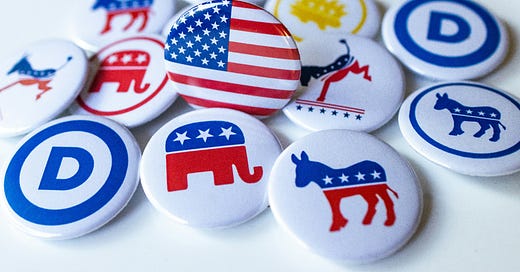






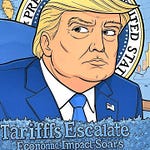
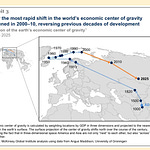
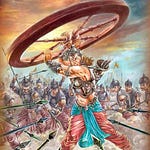
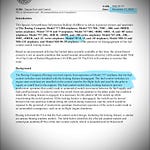




Share this post